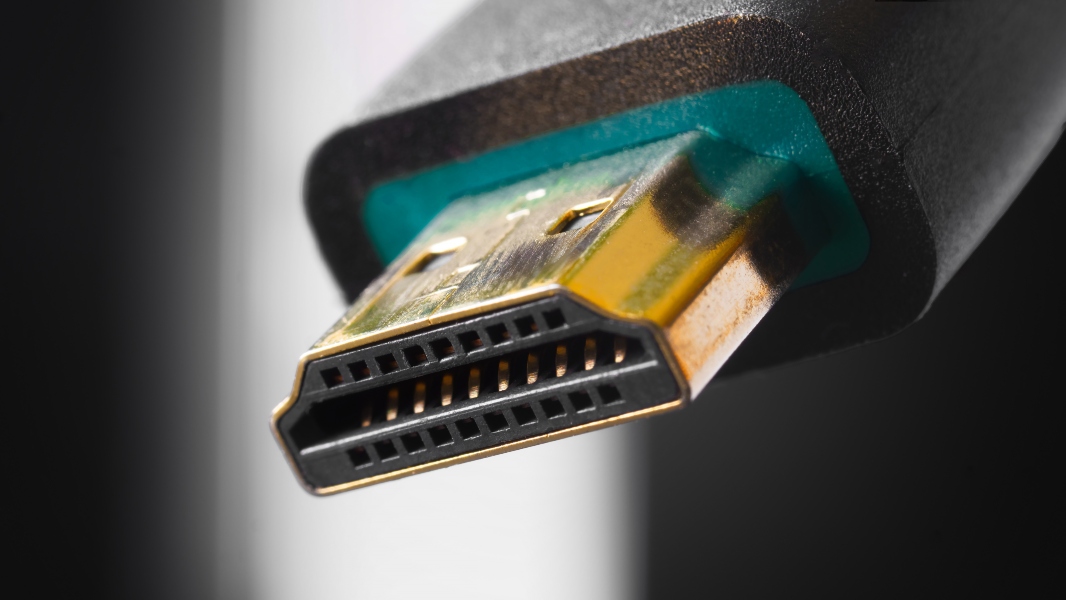As HDMI® technology continues to advance and as demand for reliable AV connectivity grows, HDMI Licensing Administrator, Inc. (HDMI LA) is taking aggressive steps to combat a rising wave of counterfeit and unlicensed products. From factory raids and customs seizures to civil litigation and even jail time, the organization’s enforcement strategy is evolving rapidly to meet a global challenge.
According to Trudi Bordi, vice president of licensing at HDMI LA, the scale and scope of infringement has grown significantly over the past decade.
“Over the last 10 years, it’s definitely increased, and it’s not just cables,” she says. “It’s TVs, it’s set-top boxes. It’s accessories like your docking stations, splitters, switchers. Everything and anything.”
A Multilayered Enforcement Strategy
HDMI LA receives counterfeiting leads from a range of sources. Licensees sometimes flag suspicious activity from neighboring manufacturers. Trade shows occasionally reveal large booths from companies that aren’t properly licensed. Discrepancies in royalty audits may point to unlicensed products in the market. And the organization’s anonymous online whistleblower tool allows anyone to submit tips confidentially.
Once a lead is verified, investigators primarily based in China go undercover to assess a company’s operations. Acting as potential buyers or customers, they evaluate how much product is being produced, inspect storage and manufacturing facilities, and determine if the scale warrants enforcement. If so, HDMI LA prepares to coordinate a factory raid.
These raids are carried out in partnership with China’s Market Supervision Bureau (MSB). While HDMI LA compiles and delivers the evidence, local authorities conduct the raid itself. The process is often complicated by leaks, as factory owners may be tipped off through group messaging platforms like WeChat. Bordi notes that in some cases, entire operations were cleared out before enforcement teams arrived. In rare instances, raids have turned violent.
“We’ve actually gone in there where the counterfeiters were actually beating up on the authorities,” Bordi says.
Civil Penalties and Jail Time
If a raid results in the seizure of counterfeit goods, HDMI LA typically pursues civil litigation in Chinese courts, where they’ve had a 100% success rate to date. Penalties are based on production volume and the amount of product confiscated.
More recently, some cases have escalated into criminal prosecutions. In two separate incidents, individuals were jailed for manufacturing counterfeit HDMI goods. One factory operator was arrested on his 40th birthday, posted bail, then pleaded guilty in an attempt to reduce his sentence. The court rejected that request and sentenced him to an additional nine months. Another individual served four to six weeks following a similar case.
Customs Seizures and Global Enforcement
HDMI LA also works closely with customs agencies in the U.S., EU, UK, and Asia to intercept unlicensed products at borders. When a product is flagged by customs, HDMI LA’s team verifies whether it is properly licensed. If it’s not, the agency is notified and takes over the case. In the U.S., seizures are typically handled by Customs and Border Protection, although Homeland Security may occasionally become involved. In most cases, unlicensed goods are seized and destroyed.
In one U.S.-based case, a broader investigation uncovered not just fake HDMI gear but counterfeit Apple products and other major brand knockoffs. HDMI LA was one of several IP holders affected in that case.
Certification Labels and Market Audits
To help differentiate genuine products from counterfeit or non-compliant ones, HDMI LA operates a cable certification and labeling program. Originally launched in 2015 for Premium HDMI cables and expanded in 2020 for Ultra High Speed cables, the program requires manufacturers to pass certification tests at authorized test centers before applying for official HDMI labels tied to specific brand and model numbers.
“The process is that people have to get their cable tested and certified at an authorized test center,” says Brad Bramy, vice president of marketing at HDMI LA. “And then once they do that, it’s a continuation of just any normal HDMI product certification.”
Nearly 100 adopters regularly participate in the labeling program, often producing cables for multiple brands. The labels serve as a key enforcement tool as well. If a product is claimed to meet a current HDMI spec but lacks a label or certification listing, that can trigger an investigation.
“You don’t always have to counterfeit a cable,” Bramy says. “You can just have a cable that’s not compliant to the current spec.”
HDMI LA also performs random audits by purchasing cables from retailers and online marketplaces. If a product fails testing, the manufacturer must submit an improvement plan. Repeat failures result in removal from the certification program and loss of branding rights.
Tariffs and the Road Ahead
Looking ahead, Bordi says that potential tariff changes and staffing reductions at U.S. customs offices present new uncertainties. Fewer customs officers could lead to reduced border enforcement, while tariffs may allow counterfeiters to undercut licensed manufacturers on price.
She emphasizes the importance of continuing to monitor activity and maintain strong relationships with customs authorities worldwide. HDMI LA is also tracking whether enforcement support is increasing or decreasing, and whether changes in global trade policy may create new enforcement challenges.
“The bad guys get better, but so do we,” she says. “We’ve got to figure it out as well. They make changes, we have to change. It goes hand in hand.”
To report a suspected infringing HDMI product, visit the HDMI Authenticate page or the HDMI Whistleblower form.






